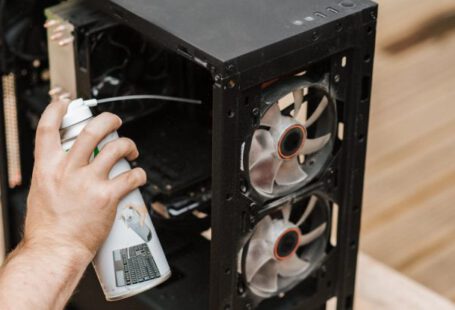In today’s digital age, the use of Virtual Private Networks (VPNs) has become increasingly popular due to the growing concerns over online privacy and security. VPNs work by encrypting your internet connection and routing it through a remote server, masking your IP address and providing anonymity online. While VPNs offer numerous benefits, such as enhanced privacy and security, many users wonder if using a VPN can have an impact on their computer’s performance.
Understanding the Impact of VPNs on Computer Performance
When considering the impact of VPNs on computer performance, it’s essential to delve into how VPNs operate and the potential implications for your device. While VPNs are designed to protect your online activities, they can also introduce certain trade-offs that may affect your computer’s speed and efficiency.
Bandwidth Limitations and Connection Speed
One of the primary concerns with using a VPN is the potential impact on your internet connection speed. Since VPNs route your traffic through a remote server, it can lead to a slight decrease in connection speed. This decrease is often a result of the encryption process and the additional distance your data must travel to reach the VPN server.
While the decrease in speed may be negligible for everyday browsing activities, it can become more noticeable when engaging in bandwidth-intensive tasks such as streaming high-definition video or online gaming. In these instances, the encryption and rerouting of data through a VPN server can lead to buffering, latency, and overall slower performance.
Resource Consumption and System Overhead
Another factor to consider when evaluating the impact of VPNs on computer performance is the resource consumption and system overhead associated with running a VPN client. VPNs require processing power and memory to encrypt and decrypt data, as well as to maintain a secure connection to the remote server.
Depending on the VPN provider and the level of encryption used, running a VPN client in the background can consume varying amounts of system resources. In some cases, this additional workload may lead to higher CPU usage, increased memory usage, and potentially slower overall system performance, especially on older or less powerful devices.
Potential Compatibility Issues and Software Conflicts
In addition to the impact on connection speed and system resources, using a VPN may also introduce compatibility issues and software conflicts that can impact your computer’s performance. For example, certain applications or services may not function correctly when routed through a VPN, leading to connectivity issues or performance degradation.
Furthermore, some VPN clients may not be fully optimized for all operating systems or devices, potentially causing stability issues or conflicts with existing software. It’s essential to choose a reputable VPN provider and ensure that their software is compatible with your specific operating system and hardware configuration to minimize the risk of performance issues.
Tips for Optimizing VPN Performance
While VPNs can have a minor impact on your computer’s performance, there are several steps you can take to optimize your VPN experience and minimize any potential drawbacks:
– Choose a reputable VPN provider known for their commitment to privacy, security, and performance.
– Select a VPN server location that is geographically close to your physical location to minimize latency and improve connection speed.
– Consider using lightweight VPN protocols such as OpenVPN or IKEv2 for faster encryption and decryption speeds.
– Close unnecessary applications and browser tabs to free up system resources when using a VPN for bandwidth-intensive tasks.
– Regularly update your VPN client and operating system to ensure compatibility and performance improvements.
In conclusion, while using a VPN can have a minor impact on your computer’s performance, the benefits of enhanced privacy and security often outweigh any potential drawbacks. By understanding how VPNs operate and taking steps to optimize your VPN experience, you can enjoy the peace of mind that comes with secure online browsing without compromising your device’s performance.





